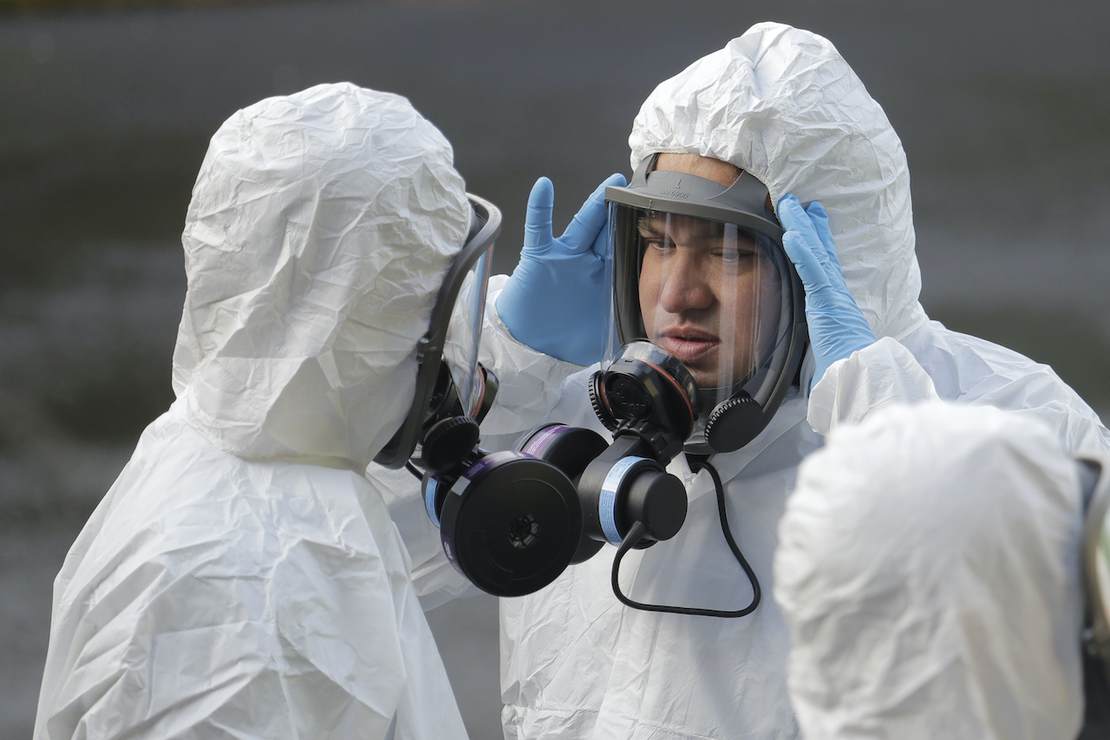
I know everyone’s eager for Hot Vax Summer 2.0 after Hot Vax Summer 1.0 was so rudely canceled by the Delta variant last year.
But don’t throw out those masks just yet.
Monkeypox is a disease typically seen in Africa, not the U.S. or Europe. Yet nine cases have been identified in the UK so far this month, and today brought news from Massachusetts that a U.S. citizen has come down with it. In Africa the case fatality rate for one particular strain of monkeypox is around 10 percent. COVID’s fatality rate is somewhere between one and two percent by comparison.
Time to dial up Pfizer and Moderna and see what they might have on the shelf? Well, hold that thought. If you’re of a certain age, you might already be vaccinated against monkeypox.
A man who recently traveled to Canada was tested for the virus Tuesday, and the infection was confirmed by the CDC on Wednesday, the Massachusetts Department of Public Health said in a statement. The news comes the same day British and Portuguese health authorities reported new cases, heightening concerns that monkeypox is spreading undetected outside of central and West Africa, where it is typically found.
The CDC is monitoring six Americans for potential monkeypox infection after they shared a flight with a British patient who tested positive for the virus, senior CDC official Jennifer McQuiston told STAT on Tuesday…
Experts are trying to determine how the virus is spreading and how the unusually large number of cases may be connected.
Look on the bright side. Given all the recent practice we’ve had at avoiding public spaces, the next round of lockdowns will barely disturb our collective consciousness.
There’s good news and bad news. Good news first: Traditionally monkeypox doesn’t spread easily but rather “requires close physical proximity over an extended period of time,” per virologist Angela Rasmussen. That’s because the virus resides in large respiratory droplets that typically don’t travel more than a few feet instead of in tiny aerosols that can float around for long distances in indoor spaces a la COVID. In Africa people typically contract it by being bitten or scratched by animals (rodents, not monkeys) or while preparing bushmeat. Chains of transmission tend to peter out quickly due to the difficulty of transmission, but if you’re infected you can expect flu-like symptoms for two to four weeks, swollen lymph nodes, and painful blisters resembling smallpox, even on the palms of your hands.
READ RELATED: Great: Yes, of course we helped sink Russia's Black Sea flagship, U.S. officials admit
Monkeypox’s similarity to smallpox (although it’s far less contagious and lethal) is good news in a way, however. According to NPR, smallpox vaccines are 85 percent effective at preventing it. Older people who were vaccinated against smallpox as children presumably have some defenses against monkeypox already, in other words. Younger people born after smallpox was eradicated probably haven’t been vaccinated and therefore won’t have those defenses — but there’s good news for them too. The FDA approved a combination smallpox and monkeypox vaccine three years ago. There is something on the shelf, it turns out! Just not from Pfizer or Moderna.
Which brings us to the bad news.
Although there are only nine confirmed cases in the UK, the amount of transmission is alarming to scientists because there appear to be two distinct chains there. That doesn’t normally happen with monkeypox; it usually begins with someone who’s traveled abroad to Africa, then continues with their close contacts, and soon dies out. The possibility that there are multiple unconnected routes of transmission in Britain calls to mind two of the most haunting words in the English language: Community spread. And if there’s community spread of a virus that’s not supposed to spread in the community, it may be that the particular strain of monkeypox that’s infecting people is a new variant, one that’s more transmissible than known strains. In fact, there’s already evidence of it: One of the clusters identified by the Brits involves several gay men, raising the possibility that this strain can be transmitted sexually.
“We do have a level of concern that this is very different than what we typically think of from monkeypox. And I think we have some concern that there could be spread outside the U.K associated with this,” Jennifer McQuiston, a senior CDC official, told STAT in an interview…
Complicating the situation — and amplifying the concern — is the fact that the other cases comprise two distinct groups that have no discernible links to one other. Two of the confirmed cases and the single probable case are a family unit, Maria Van Kerkhove, a World Health Organization expert, said at a press conference on Tuesday. The other four confirmed cases, disclosed most recently, were identified by the U.K. Health Security Agency as gay, bisexual, or other men who have sex with men — three from London and a fourth from Newcastle, nearly 300 miles to the north. All four were likely infected in London, the agency said…
The fact that there are two apparently unconnected clusters suggests there may be more than one chain of transmission in the country, each of which could contain additional cases that haven’t yet been detected.
The Wall Street Journal is reporting this afternoon that there are actually three small and as-yet-unconnected clusters in the UK, not two. Until this month, said NPR, the average person infected with the disease spread it on average to less than one other person. But it’s unclear if that’s still true in the current outbreak. “It’s an unprecedented situation,” said one local public health expert to the WSJ. “We’re struggling to put this together.”
NPR asked one expert if the virus could become more of a threat as it spreads. Uh, yes, he replied. It’s a virus just like SARS-CoV-2 is a virus. The more people it infects, the more opportunities it has to mutate by chance into something more contagious and/or more virulent. The fact that the outbreaks in the UK and Portugal are unusually large is circumstantial evidence that the virus has already mutated into a more infectious strain. Think of it as evolutionary “momentum”: Once it acquires a certain capability to infect people, it gains more opportunities to hone that capability.
I know the Biden White House likes to wait until crises have exploded and are in full flower before doing anything to head them off. But it might be time to call the vaccine manufacturers and inquire as to how much smallpox vaccine is available in case we need it in a pinch.
Source:





